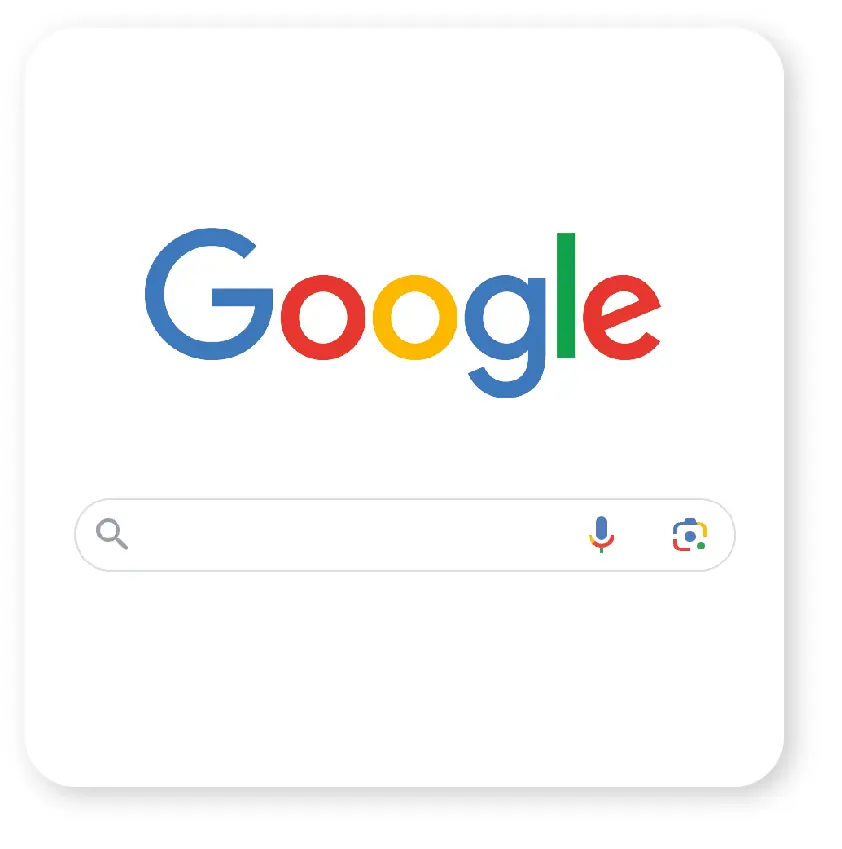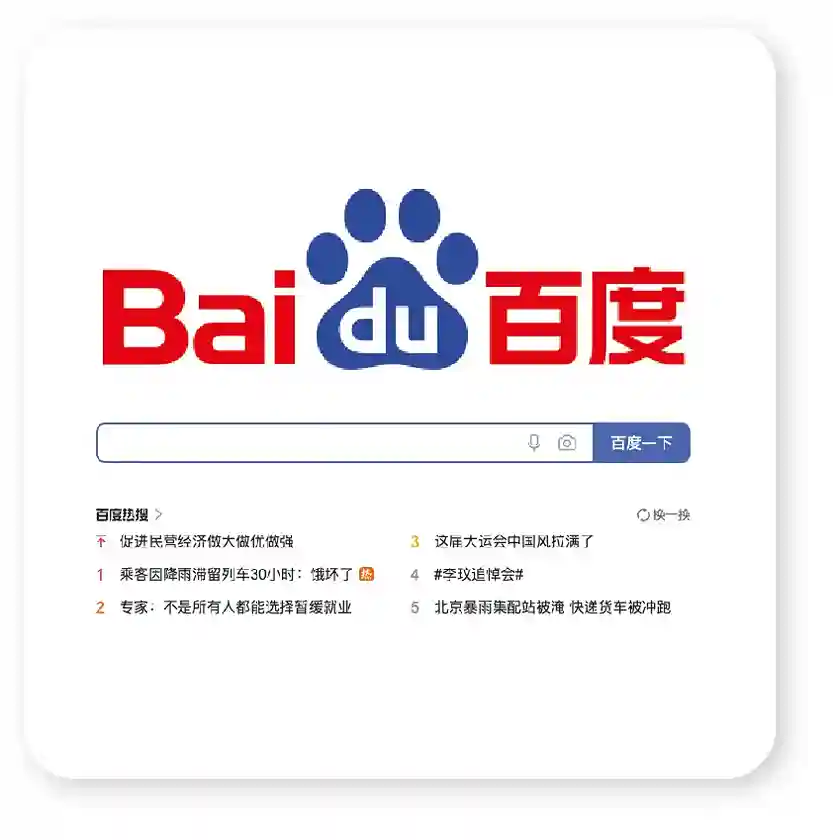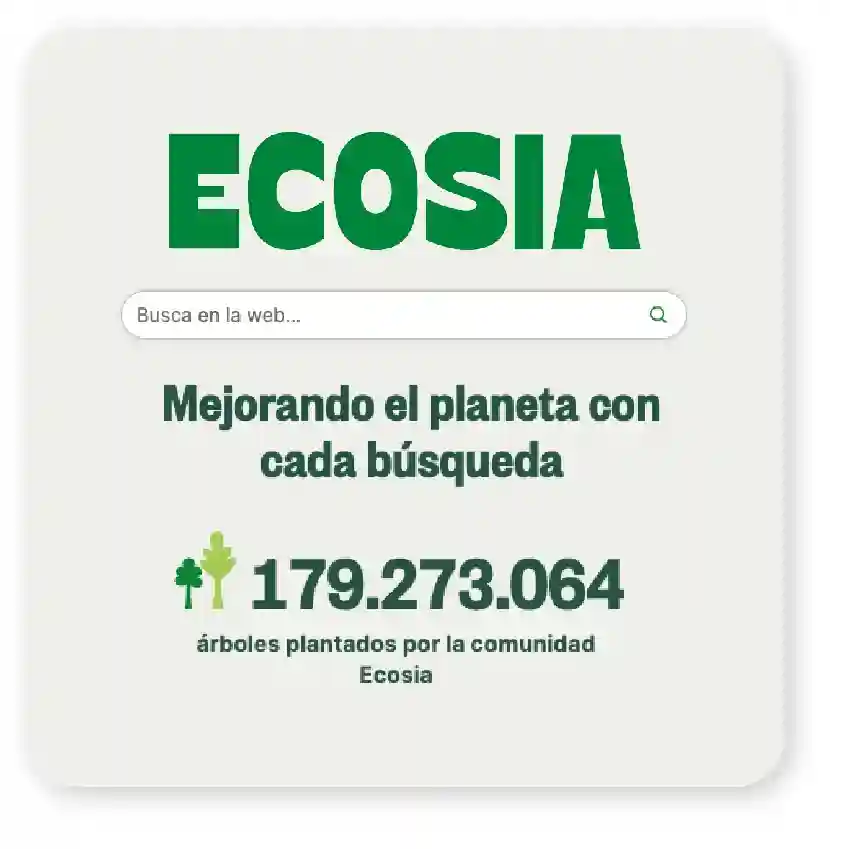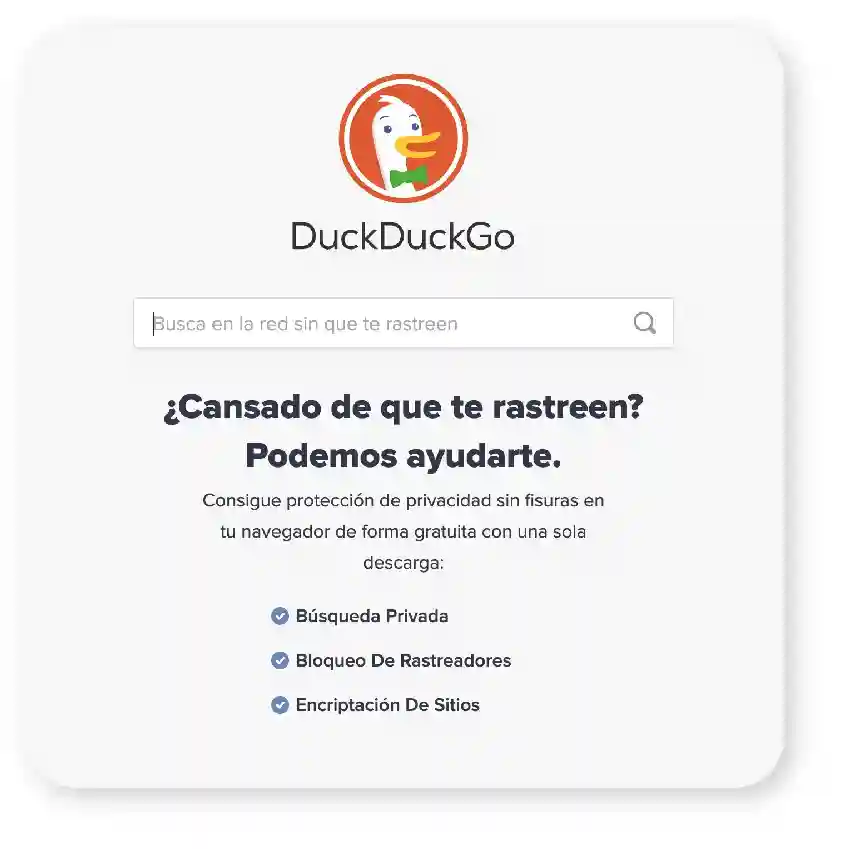If you are from Spain or Latin America, chances are very high that you landed on this post through Google. In fact, you will surely not spend a day without looking for something in it: tickets for a show, how to get to a place or the biography of a famous person, to name a few of the infinite doubts/curiosities that may arise.

Google the well-known search engine, has been a part of our lives for years, but few know that, in reality, it is just one of many search engines in use around the world.
This type of tools, search engines, have become essential in today’s lifestyle.They provide us with information in a matter of seconds that, if it were not for them, it would take minutes, hours, days or a lifetime to find (if we find it at all).
But what is a search engine? How do they work? When did they appear? Which are currently the most used?…
These are some of the doubts/curiosities that have arisen for you today, the answer to which, if we have done it right, is this post that you have reached through a search engine. So, let’s get to it…

What is a search engine?
Can you imagine having to manually visit all the web servers to find the information you need? That’s assuming you had a list of all the public domains in the world, which, logically, you do not.
To carry out this impossible task for a human, search engines or search engines appeared, computer systems that compile the information stored on the web servers and offer it to the user on a results page. This page will display all the web sites that, for that search engine, answer the query made by that person.
Basically, a search engine would be like the librarian you ask for a particular book and he searches all the shelves for it while you wait comfortably for him to come back.
When did search engines appear?
The first search engines appeared in the early 1990s due to the need to collect content from the Internet, which was constantly growing with the appearance of more and more websites.
Thus, the first search engine itself was Wandex, in 1993, developed by an MIT scientist who sought to quantify the size of the Internet. A year later, in 1994, Aliweb was announced, a search engine much more advanced than the previous one, as it was able to read and interpret the content of many web sites in real time.
These search engines were the seed of Yahoo, Google and Bing, three of the most widely used search engines in the world today (although the search engine created by Larry Page and Sergey Brin in 1997, Google, clearly takes the cake).
How does a search engine work?
A search engine has what is known as a spider or “botsoftware that, in an automated and continuous way, access and crawl the pages that make up a website (called URLs), identify its contents thanks to the keywords on that page and classify it in an index.
Thus, when the user makes a query, the search engine will show the pages of the index that, according to its algorithm, provide an answer to that query. The algorithm is precisely the heart of any search engine, since the more advanced it is, the more accurate and satisfactory the answers it gives to the user will be.
For example, a good algorithm is the one that, for the query “rent a car”, shows you in the first positions the results of companies offering car rentals (prices, models, dates, etc.). On the other hand, a poor algorithm will show you in the top positions results about the history of cars, per say.
The latter is what SEO experts call “search intent”: to deliver results as fine-tuned as possible based on the user’s query. In the example above, the person looking to “rent a car” has no intention of learning about the history of the automobile.
Types of search engines
From a technical point of view, we can talk about three types of search engines, which are:

Hierarchical search engines
A hierarchical search engine would be the Google search engine, since these search engines collect and store information from web pages (generally making a copy of them) and then display it to the user according to their query.

Directories
Unlike hierarchical search engines, directory-type search engines do not crawl Web sites or store information. Rather, it is a grouping of links that are sorted by category, rather than by relevance to the user’s query.

Meta search engines
Meta search engines do not have their own database, but forward the query to other search engines and then analyze the results they provide.
Top search engines in the world


Let’s start with the undisputed master of search engines: worldwide speaking, Google held a market share of more than 91% in 2022, according to data from a Statcounter study.
One of the reasons for the supremacy of this search engine is the quality of its algorithm, which is constantly updated to provide increasingly refined search results (the search intent mentioned above). This makes it the search engine of choice for SEO agencies and PPC professionals running search ad campaigns.

Bing
Google’s main direct competitor is the search engine owned by another technology giant: Microsoft. Its share of international usage is approximately 3%, but in the English-speaking market Bing accounts for a third of all searches. One of the attractions of Microsoft’s search engine is its rewards system, a points program that you earn when you make purchases from its search engine.

Yahoo!
Yahoo was the most used search engine in the 1990s, although today it has a lower market share than Bing and, of course, Google (1.5%). Yahoo is powered by Bing, so the results between the two search engines are very similar.
Although it is no longer used as much these days as it was when it first appeared, it still retains its “nostalgic” audience that has used it all their lives.

Baidu
The constant clashes between Google and the government make it unlikely that Page and Brin’s search engine will ever unseat the “Chinese Google”, Baidu, which has a 75% market share in China.
If you want to focus on the Chinese market, Baidu is the search engine you are looking for. Its interface design is similar to that of the American search engine, although with a clear difference: it is in Mandarin Chinese.

Yandex
Still in Asia, Yandex is the most used search engine in Russia, with a 60% market share in the territory of the federation. It also has a good presence in former Soviet republics such as Ukraine, Kazakhstan and Belarus.
Although originally intended for Russian-speaking users, it now has versions in English and other languages. Nevertheless, its international market share is around 1%.

Ecosia
Ecosia is a search engine that appeared in 2009 with a commendable goal: to plant a billion trees by 2025. That’s right, this eco-friendly engine donates 80% of its revenues to non-profit organizations involved in the reforestation of the planet.
It has its own algorithm, but, like Yahoo, uses Bing’s services to deliver results to its 125 million users per month. In addition, this search engine does not store information about user behavior in order to offer personalized advertising.
Recommended for those who value privacy, the planet or both.

DuckDuckGo
Lastly, we talked about another of the search engines that most value user privacy: DuckDuckGo, the crawler that doesn’t track you.
It emerged in 2008, but in recent years it has become more relevant in the market, so much so that in 2022 it reached a share of almost 2.4% in the United States.
Search engines and digital marketing

A tool that gives visibility to web pages is, by all means, fundamental in digital marketing.
Thanks to search engines, users or potential customers can find the product or service they are looking for in a matter of seconds. No need to walk around the mall: a simple search engine query is all it takes.
However, what is not enough is to have a beautiful website to appear at the top of a search engine results page. In fact, this is where one of the most important teams in a digital marketing agency comes in: the SEM experts.
SEM, deciphering the search engine algorithm
SEM is an acronym that stands for Search Engine Marketing, and refers to marketing done through search engines. Basically, it consists of planning and applying strategies inside and outside a website to achieve the best possible position in search engines.
A SEM team is divided into two sub-teams, the PPC experts and the SEO experts, each with different functions but the same goal: to please the search engine algorithm.
PPC or pay per click
PPC, “pay per click”, consists of paying a search engine to make a page appear when a user makes a query. In general, the search engine charges for each click on the ad. In the old world, it would be equivalent to paying a TV network to show your brand’s ad.
Pay per click” is a good option when you have a large budget to invest in this type of actions, since, although other factors are involved, the more money you spend, the better positions in the results are likely to be achieved. (Again, more aspects must be taken into account).
For example, if you sell high heels, the page where you display all your high heels will appear as an ad when someone searches for “high heels”.
As you can imagine, the flip side of PPC is that, with zero or low investment, there is no visibility. Does this mean that websites without an ad budget will never appear in a search engine? The other team arrives to save you…
SEO or organic positioning
SEO (we proceed with more weird acronyms) refers to organic, natural positioning, that is, the one that is achieved without having to pay the search engines. Among their various tasks, SEO experts are in charge of modifying technical and content aspects of a page to make it satisfy the user’s search as much as possible.
In this way, thanks to these actions, the search engine algorithm “rewards” that page by showing it in better positions. Returning to the example from before, with SEO, your high heels page will appear first in the organic results, that is, those shown after the ads.
As it does not depend on advertising investment, unless a meteorite falls or the Internet disappears from the world, your high heels page will continue to be displayed without paying a euro to the search engine, as long as you have SEO consultants who know what actions will keep you on the podium.
What’s better PPC or SEO for your business?
For the almost 10 years that we have been working in our digital marketing agency in Barcelona, we know that PPC and SEO can and should go hand in hand. A strategy based on only one of them is not optimal, since PPC and SEO are mutually reinforcing:
- The PPC team does not usually deal with technical errors on a website, errors that the user does not see, but the search engine spiders do. It is the technical SEO team that resolves them, and this benefits both your paid and organic results.
- With PPC and SEO you will increase your visibility, since you will occupy more than one position on the results page: the user will first see your paid result and, further down, your organic result.
- Some users never click on an ad, but those same users always click on organic results…
There are more reasons why it is advisable to combine a PPC and SEO strategy, but one thing is already clear: if you want to do search engine marketing, you need a professional marketing agency like Maktagg.
Do you want us to help you improve your positioning in Google? Click on the button and tell us about your project.







